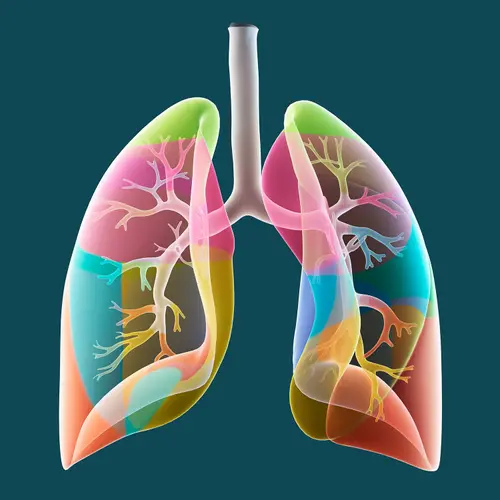By Jeff Meckstroth, as told to Kara Mayer Robinson
I’m a 62-year-old retired firefighter. I live in Piqua, OH, with my wife, Rhonda. In 2015, I was diagnosed with non-small-cell lung cancer, or NSCLC.
Getting a diagnosis was a delayed process. It started at an annual physical with my family doctor. I happened to mention that I had a lingering, nonproductive cough. This simple cough discussion led to a battery of tests. Ultimately, in 2015, I was given a diagnosis of stage IV NSCLC.
The diagnosis was a complete shock for our family, as well as our community medical team. No one believed it was possible for a healthy adult male with a simple cough and no history of tobacco use to have stage IV NSCLC.
Along with Rhonda, I felt emotionally broken. Imagine the feeling of drowning while trying to comprehend a foreign language -- and then being responsible for making immediate decisions that your life depends on.
I went to a community oncologist, who got a recommendation from a NSCLC specialist to perform comprehensive biomarker testing in my tissue and my blood. That gave us a detailed analysis of my cancer and my treatment choices. It was invaluable information.
I think it’s vital for every medical professional who treats this disease to conduct biomarker testing. It can make all the difference in living with the disease.
My NSCLC Treatments
My tests showed I was a candidate for targeted therapy. I’m now on my third targeted therapy, which I’m doing through a clinical trial. I take a simple pill every day. I’ve been progression-free for 3 years on this third round of oral therapy.
My disease has metastasized, or spread, to my bones, so I’ve also had five rounds of radiation. Every 3 months I have lab work, a CT scan of my chest, abdomen, and pelvis, and a brain MRI. Periodically, I receive an injection to strengthen my bones. I also have a bone scan.
How I Navigate the Emotions of Life With NSCLC
Both Rhonda and I have had to develop coping skills to manage living with NSCLC. They include counseling, living in the moment -- because future thoughts are crippling -- and finding gratitude and joy each day.
For Rhonda, education and advocacy for NSCLC families is an important way to do this. As an advocate, she champions the voice of the caregiver and helps people who are newly diagnosed. She also drives education and awareness for appropriate testing and treatments. She spends time every day advocating for and helping other families navigate this journey. She firmly believes it helps her deal with the diagnosis.
One of the biggest changes we made was our mindset from dying to living with NSCLC. We know the reality of this diagnosis, but it wasn’t helpful to live in a constant state of thinking about death and dwelling on the negative aspects of all we have lost. Instead, we find gratitude for what we still have.
In between the downs of the journey, we work very hard at living a normal life. I remember one particular day that changed everything. I said to Rhonda, “If I didn’t have NSCLC, I would buy a new combine.”
We decided to buy it anyway. Now, when we come upon new life choices, we make a conscious decision to “buy the combine” despite having cancer. It’s been a game changer for surviving the roller-coaster ride.
My Advice for Living Well With NSCLC
We’ve found many ways to maintain hope throughout the journey with NSCLC. Here are some that may be helpful to you too:
Get help from your team. It’s vital to have a well-educated, diverse medical team that includes a specialist in treating your specific type of NSCLC. Undoubtedly, this will lessen your burden of decision-making.
Communicate. Every member of the family has a unique experience in a cancer diagnosis. It’s important for each person to express what they’re going through. I call Rhonda my sharegiver because we share our cancer journey.
Children, including adult children, also are impacted by a family member’s diagnosis. It’s important to create opportunities to talk about their emotions, not only with each other but also with a professional or support group.
Trust your gut. I recommend that patients and sharegivers follow their instincts. No one knows your situation better than you and your sharegivers. Question everything, educate yourself, and trust your gut.
Connect and share. We like to read about, meet with, and share with other NSCLC families. For example, Rhonda found a family who lives 15 minutes from us that has been living with the diagnosis for more than 10 years. A NSCLC diagnosis can be isolating: It’s helpful to find and engage with others who share your experiences.
Stay present. Future thinking and “what-ifs” have no advantage for your well-being. Stay present and live in the moment. Make it a point to be grateful every day.
Look for inspiration. Reading about all the advances in testing and treatments gives us great hope. We also try to inspire others. We offer our favorite advice: Buy the combine.

